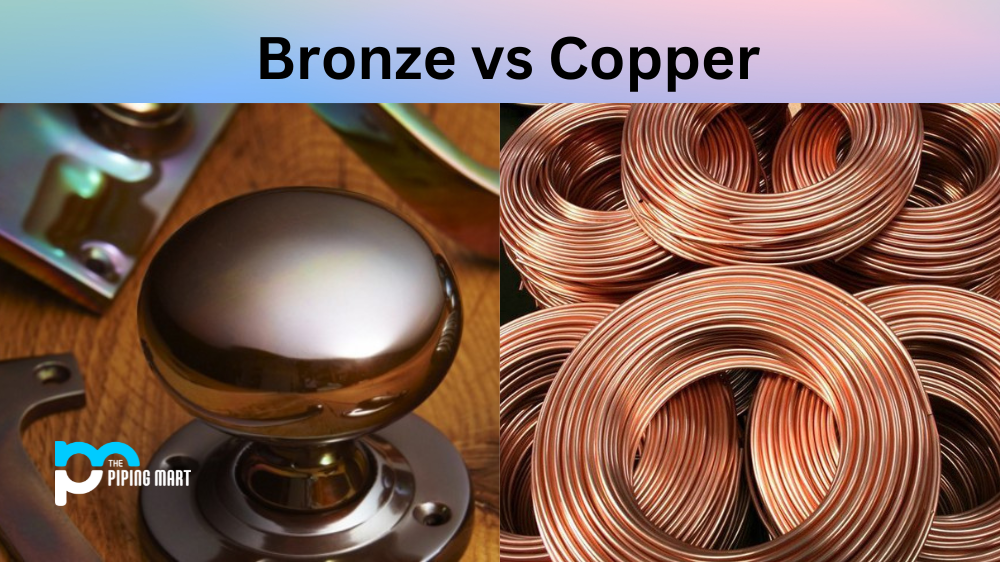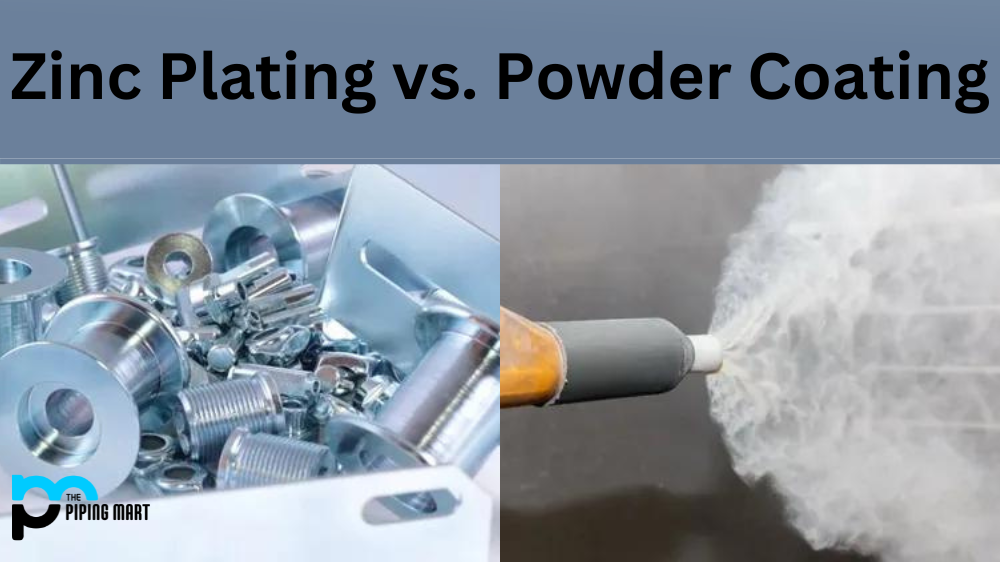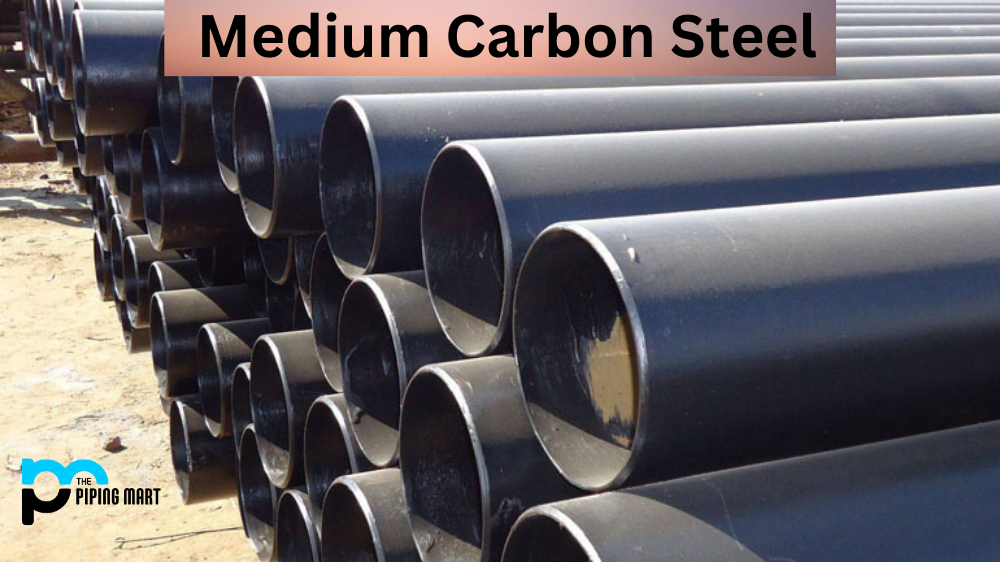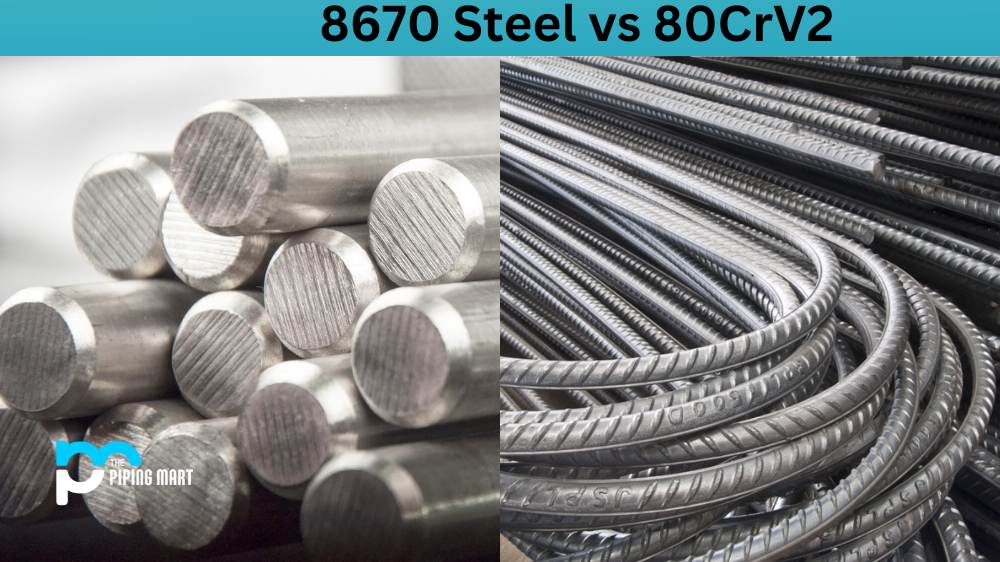We often hear about metals such as bronze and copper, but what are the actual differences between these two materials? Let’s take a closer look at both metals to compare their advantages and disadvantages.
What is Bronze?
Bronze is an alloy of copper, tin, and other elements, which makes it harder than copper alone. It was first used in 5500 BC in Mesopotamia, where it was used for tools, weapons, and jewelry. Today, it is still widely used for decorative items such as sculptures due to its strength and beautiful appearance. It is also used as a material for bearings due to its low friction properties.
What is Copper?
Copper is a metal that has been known since ancient times and has been used for its many properties, such as electrical conductivity, corrosion resistance, heat resistance, etc. It can be found in coins, jewelry, and water pipes today. In addition to its applications in industry, it can also be found in art pieces such as sculptures due to its attractive color.
Advantages of Bronze over Copper
The main advantage of bronze over copper is that bronze is stronger than copper. This means that bronze objects can last longer without needing repairs or replacements, which makes them an ideal choice for outdoor applications where they may be exposed to harsh climates or wear from use. Additionally, bronze has a lower coefficient of friction than copper, which makes it useful for bearing applications where there needs to be minimal movement between two surfaces.
Better Strength and Durability
One of the primary advantages of bronze over copper is that it is stronger and more durable. Bronze is an alloy of copper and tin, and the addition of tin makes it much stronger than pure copper. This makes bronze ideal for applications where strength and durability are important, such as in the construction of buildings and bridges.
More Resistant to Corrosion
Bronze is also more resistant to corrosion than copper. This is due to the fact that bronze forms a protective oxide coating when exposed to air, which prevents further corrosion. Copper, on the other hand, does not form this protective coating, making it more susceptible to corrosion.
Lower Melting Point
Bronze also has a lower melting point than copper, which makes it easier to cast into shapes. This is because the addition of tin lowers the melting point of the alloy. This can be beneficial in applications where parts need to be cast into complex shapes.
Better Bearings and Bushings
Bronze is also better suited for bearings and bushings than copper. This is because bronze has a lower coefficient of friction than copper, which means that it will not wear down as quickly when used in these applications. Additionally, bronze is less likely to seize up when used in bearings and bushings than copper.
More Aesthetically Pleasing
Bronze is also more aesthetically pleasing than copper. This is because bronze has a golden color that can add a touch of elegance to any application.
Disadvantages of Bronze over Copper
Despite having advantages when compared to copper, bronze also has some disadvantages when compared with this metal. Firstly, bronze is more expensive than copper due to the additional materials needed to create the alloy. Secondly, bronze objects tend to oxidize more quickly, which can cause them to become discolored if not properly maintained or stored correctly in environments where humidity or salt content are high. Finally, because bronze contains other elements besides just copper, it may react differently with chemicals or other substances, making it less suitable for certain applications where chemical compatibility must be taken into consideration when choosing materials.
More expensive
One of the primary disadvantages of bronze over copper is that it is more expensive. This is due to the fact that bronze is an alloy, which means that it is made up of two or more metals. In the case of bronze, it is typically made up of copper and tin. The addition of tin to the copper makes the resulting metal stronger and more durable, but also more expensive.
More difficult to work with
Another disadvantage of bronze over copper is that it is more difficult to work with. This is because bronze is a harder metal, which makes it more difficult to cut, shape, and mold. As a result, it takes longer and requires more skill to create products out of bronze than out of copper.
Tarnishes more easily
Another disadvantage of bronze over copper is that it tarnishes more easily. This means that it will develop a patina, or a thin layer of film, on its surface over time. While some people may find this patina to be attractive, it can also be difficult to remove if you want to keep the metal looking shiny and new.
Weighs more
A fourth disadvantage of bronze over copper is that it weighs more. This can be problematic if you are looking to use the metal for something like jewelry, as the extra weight can make the piece uncomfortable to wear. Additionally, the extra weight can also make it more difficult to transport or move around.
Not as conductive
Finally, bronze is not as conductive as copper, which means that it is not as good at conducting electricity or heat. This can be an issue if you are looking to use the metal for electrical applications
Conclusion:
Both bronze and copper have their own unique advantages depending on their application areas – however, when considering cost-effectiveness and durability then, bronze definitely has the edge over copper! When looking at the difference between these two metals, we should consider their pros and cons carefully before deciding which one is best suited for our needs! Intended Audience: Engineering professionals interested in understanding metals better than before.

Pipingmart is a B2B portal that specializes in metal, industrial and piping items. Additionally, we share the latest information and information about materials, products and various types of grades to assist businesses that are involved in this business.




